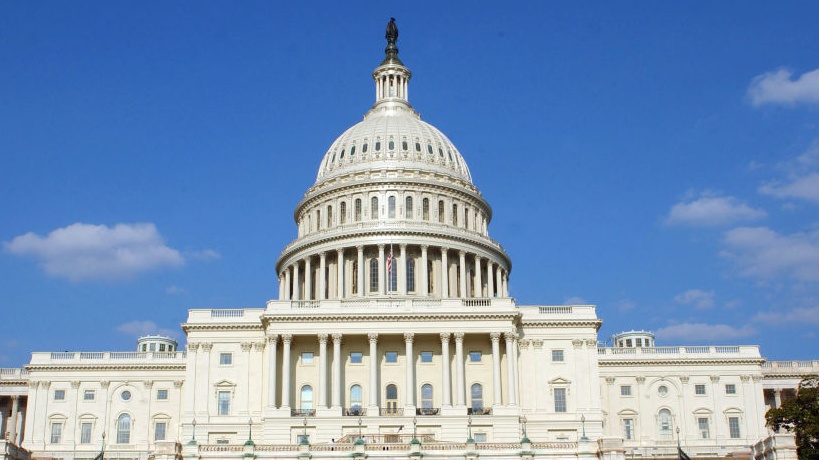There are now more Black women running for Congress for the 2020 election season than any other time in U.S. history, according to Reuters.
Of the 122 Black and multiracial women who filed to run for Congress, nearly 60 remain in the race as the primary season comes to a close. That number is up from just 48 in 2012, the Center for American Women and Politics (CAWP) reported.
“People are becoming more comfortable with seeing different kinds of people in Congress. You don’t know what it looks like to have powerful Black women in Congress until you see powerful Black women in Congress,” said Pam Keith, a Navy veteran and attorney who is running in the Democratic primary for a Florida congressional seat.
CAWP data notes that despite being only 8% of the population, in the 2008 and 2012 presidential elections Black women had the highest percentage for voter participation of any racial or gender group.
Last year the organization released a study on Black women in politics showing that 2018 was a pivotal year for Black women being elected at the state level. According to the report, a record number of Black women were elected to serve in Congress following a similarly historic number of women winning nominations for the U.S. House in the 2018 election.
"Between 2018 and 2019, Black women saw the largest gain in representation at the state legislative level since 1994. In 2019, a record number of Black women serve in state legislative office," the report said.
But the study adds that the record gains among Black women elected officials were partially a reflection of how few Black women have ever been given the chance to serve in higher office.
"While the number of Black women in statewide elected executive office doubled between 2018 and 2019 (from three to six), Black women remain severely underrepresented as officeholders at the statewide executive level, holding just 1.9% of these positions as of November 2019. Just 15 Black women have ever held statewide elected executive offices, and no Black woman has ever been elected governor despite the first-ever major party nomination of a Black woman for governor in election 2018," the study said.
The numbers for this year are a promising sign of what is to come. Right now, 23 Black women are serving in Congress, but only one, Kamala Harris, is a senator. The CAWP report broke down the numbers further, finding that Black women "are 4.3% of all members of Congress, 8.3% of all Democrats in Congress, 18.3% of all women in Congress, and 41.8% of Black members of Congress."
All Black congresswomen are Democrats, and since Shirley Chisholm became the first Black woman elected to Congress in 1968, just 44 Black women have been able to make their way into the office. Forty-two Black women have served in the U.S. House, and only two Black women have ever become senators.
The Reuters story highlighted that Black women are finding more success now because they are often on more common ground with voters compared to their wealthier, generally Republican opponents.
Jeannine Lee Lake, a former journalist running for Congress in Indiana against the millionaire brother of Vice President Mike Pence, said she can connect better with voters because of the struggles she has faced throughout her life as a working woman.
"We almost lost our house a couple of times. We ran into financial difficulties when I was first starting my business," she said.
The recent protests over police brutality and the coronavirus pandemic have only exacerbated the social gaps between local leaders and their constituents, highlighting the need for representatives who understand what the average person is going through.
A 2018 report from the Brookings Institute said Black women historically have found the most success running in majority-Black areas. But this year, Reuters spoke with a number of Black women running in majority-white districts.
“We’re going to flip this seat from red to blue. We have a candidate that knows and understands the district and its people,” said Patricia Timmons-Goodson, the first Black judge to serve on North Carolina’s Supreme Court. She is currently running for Congress in the state.
The country is eagerly awaiting the running mate decision of former Vice President Joe Biden. The heavily favored Democratic candidate for president has said repeatedly that he intends to choose a woman as his running mate, and he said at least four Black women are on his shortlist, according to The Washington Post.
Political analysts told The Post that Sen. Harris, Rep. Val Demings, former national security adviser Susan E. Rice, Atlanta Mayor Keisha Lance Bottoms and Rep. Karen Bass are all in the running. Voting rights activist and former Georgia gubernatorial candidate Stacey Abrams is also being looked at.
Biden said he plans to announce his decision by the middle of August. Harris is heavily favored to be his choice, but some analysts have said her battles with Biden during the primary may have hurt her chances.
"I am not committed to naming any but the people I’ve named, and among them there are four Black women. So, that decision is underway right now,” he told MSNBC host Joy Reid.
